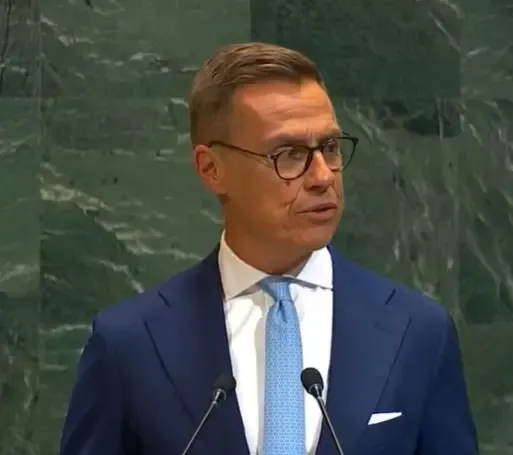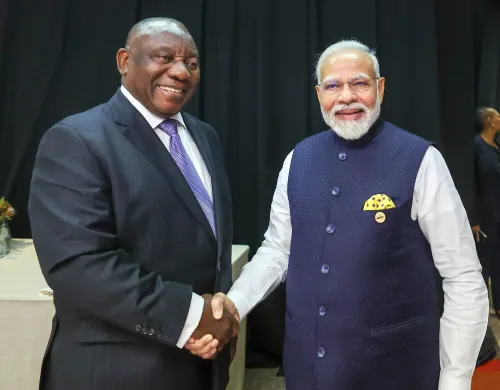How Did Finland President's Speech at the UN Align with India's UNSC Demand?

Synopsis
Key Takeaways
- Finland and India share perspectives on global governance.
- Stubb's speech underscores the need for UNSC reform.
- Multipolarity requires legitimacy and reforms.
- India asserts itself as the Voice of the Global South.
- International relations are shifting towards the South and East.
New York, Oct 1 (NationPress) The viewpoints of Finland and India regarding multipolarity, global governance, and legitimacy have a significant overlap, highlighting a collective concern for reforming global institutions. In a speech at the United Nations General Assembly (UNGA), Finnish President Alexander Stubb emphasized the necessity for reform within multilateral frameworks, echoing India's aspiration for a seat at the United Nations Security Council (UNSC), as reported on Wednesday.
During his address at the 80th session of UNGA, Stubb underscored the critical nature of the principles of multilateralism, legitimacy, and a rules-based international order. For India, his remarks were not only timely but also invigorating, as he consistently pointed out that global governance structures still reflect the realities of 1945, as detailed in a report from India Narrative.
“Despite divergent approaches and emphases, his speech strongly resonates with India's concerns, revealing several points of alignment that reaffirm New Delhi's worldview. At its essence, President Stubb's address argues that global politics must balance values, interests, and power. He articulated this with a straightforward proposition, 'In its simplest form, foreign policy is based on three pillars: values, interests, and power.' This triad is familiar to Indian diplomacy,” the report stated.
For many years, India has been negotiating its normative commitments, such as democracy, non-alignment, and sovereignty, alongside its interests in security and development, all while recognizing the power imbalances in a world dominated by major powers. When Stubb proposed that transactional foreign policies should be rooted in enduring values, he framed a structure that India also employs in climate discussions, its partnerships in the Indo-Pacific region, and trade diplomacy.
“Moreover, Stubb's advocacy for reforming multilateral institutions in his address directly mirrored India's longstanding plea for a position at the global high table of the United Nations Security Council (UNSC). His assertion that 'the composition of the UN still largely reflects the world of 1945. As global dynamics have transformed dramatically, the decision-making at the UN should also evolve' aligns with India's perspective on the United Nations,” it added.
In his speech, Stubb also acknowledged the emergence of the Global South and the shifting power dynamics toward the South and East. India has consistently presented itself as the Voice of the Global South, emphasizing development and representation issues in international discussions while striving to close the gap between developed and developing countries.
“Additionally, Stubb's defense of sovereignty, territorial integrity, and the prohibition of force resonates with India's geopolitical challenges. India has consistently framed its diplomacy around these foundational principles of international law, whether confronting cross-border terrorism, handling border disputes, or expressing concerns over unilateral actions. Thus, India's security concerns are underscored by such affirmations of sovereignty in a world where territorial aggression, from Ukraine to West Asia, has destabilized regional orders,” wrote Professor Jayesh Khatu.
President Stubb's address illustrates a rare convergence between Europe and India, indicating a recognition that multipolarity without legitimacy is precarious, and legitimacy without reforms appears superficial. India, the report concluded, can leverage Stubb's arguments to fortify its position for global governance reforms while emphasizing the perspectives of the Global South.









